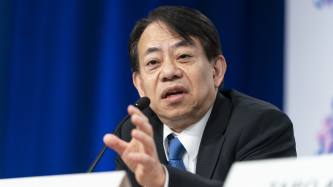Back in September 2007, a deal was agreed whereby London-based HSBC would buy 51% of Korea Exchange Bank (KEB) for $6.3bn from US buyout firm Lone Star Funds. But while the deal makes good strategic sense both for Korea’s fifth largest bank and for HSBC, the world’s third largest bank, its completion remains mired in controversy and at the mercy of the regulators.
Past disagreement
Political sensitivities dominate the transaction and date back to 2003, when Lone Star bought a controlling 65% stake in KEB for $1.2bn. Korean prosecutors allege that a criminal conspiracy had taken place in which Lone Star had manipulated the valuation of KEB’s credit card unit in order to buy the bank at an artificially low price. Lone Star has denied any wrongdoing but the legal cases continue to drag on.
The Korean Financial Supervisory Commission has stated that, as regulator, it could not approve the sale until “legal uncertainties” were cleared up.
Lone Star lawyers said in August that a final ruling may take at least three years. The company had outraged Korean public opinion in 2006 over perceived excessive profits when it tried to sell its stake to the country’s largest bank, Kookmin Bank, for more than $6bn. Although that deal collapsed, the legal issues are unresolved and nationalist feelings are running high.
Meanwhile, the HSBC bid for KEB is still on the table with some curious conditions attached. The deal will expire if it is not completed by the end of April – and if completed after the end of January, HSBC will pay $133m more.
So will HSBC get its hands on KEB, the most international of Korea’s banks, with a network covering 21 countries and more than 350 domestic branches? The final decision still rests with the regulator and no clear time frame is in place, but KEB’s chairman and chief executive Richard Wacker is adamant about how he sees the future of the bank going.
In an interview with The Banker, Mr Wacker readily acknowledges Lone Star’s role since 2003 in turning around and restoring the bank after the credit card crisis.
“But now as we go forward, we need a long-term strategic shareholder,” he says. “Lone Star was good but we need a long-term shareholder to replace it. We need clarity. Uncertainty around the shareholding is not helpful.
“We are comfortable with the approach HSBC has shown, it has been sensitive to our bank and this sets HSBC apart from others.”
Anticipated benefits
While KEB management admit that final decisions on the deal are out of their control, they are clear about the mutual benefits that HSBC would bring.
HSBC, which has 11 retail branches in South Korea, has tried to expand its presence in Asia’s third largest economy but failed to acquire in recent years when some rare opportunities became available. For example, Koram Bank went to Citigroup in 2004 for $3.4bn, while Standard Chartered grabbed Korea First Bank for $3.3bn in 2005.
HSBC hopeful
HSBC is keen not to miss out here as foreign banks have not done particularly well on their own in South Korea, as a result of limited branch networks. But the banking giant is well aware that it has not yet got a done deal on its hands.
According to Mr Wacker, KEB, while becoming a member of the HSBC Group, would maintain its own brand. With its broad range of customer relationships in international markets and its strong retail customer base of more affluent clients, KEB would maintain its strong relations with banks in Vietnam, China and Korea’s key trading partners.
It is planning to open new offices in Chile, India, Russia and a branch in Dubai and Mr Wacker readily acknowledges that the relationship with HSBC would provide a huge advantage over other local banks as well as broadening KEB’s operational range.
“This enhanced banking relationship gives us a big capability advantage,” he says.
But while the deal has a natural logic for both KEB and HSBC, political sensitivities may conspire against it as they did with the Kookmin bid in 2006. The coming weeks should see either the long-awaited bid finalised – or a golden opportunity wasted.











